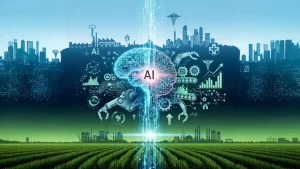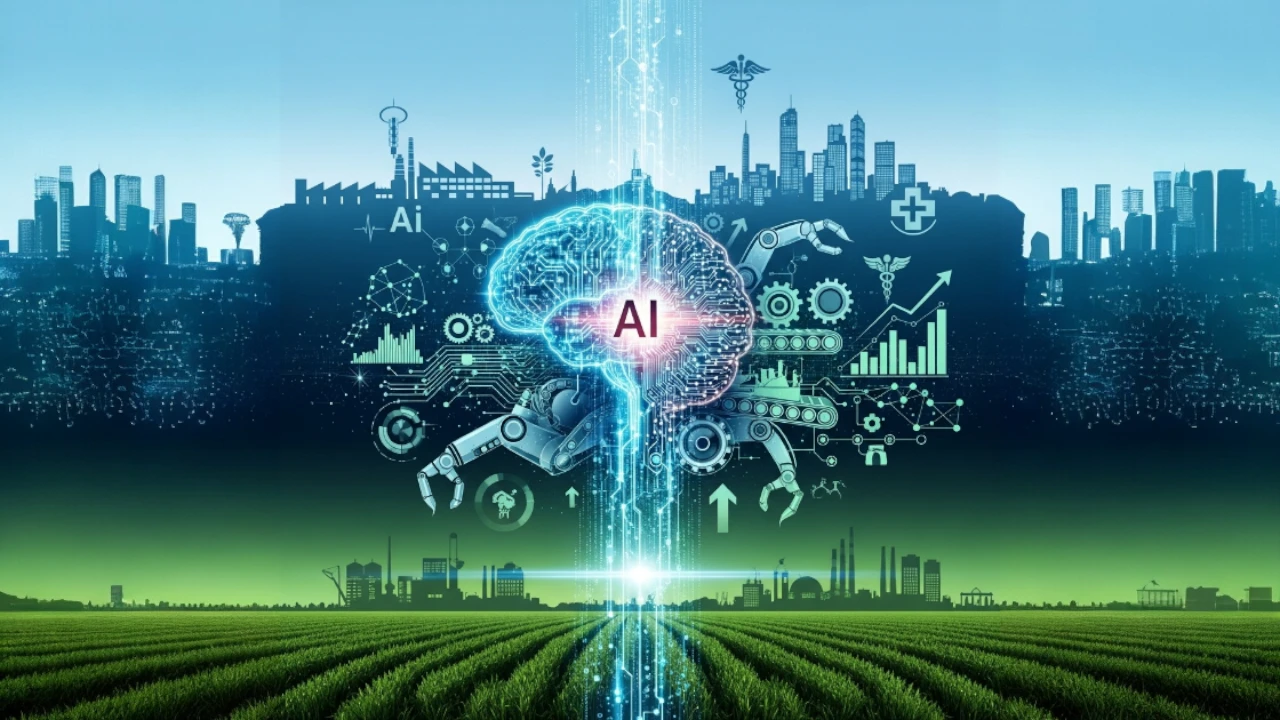The business landscape is evolving rapidly, driven by technological advancements that are transforming how we work and interact. At the forefront of this revolution stands Artificial Intelligence (AI), a powerful technology with the potential to revolutionize every aspect of your business.
What is AI and How Does it Work?
AI refers to the simulation of human intelligence in machines, enabling them to perform tasks that typically require human intelligence,1 such as learning, problem-solving, and decision-making.2 This involves developing algorithms and models that can analyze data, identify patterns, and make predictions.
Key AI Technologies Transforming Businesses
Several key AI technologies are driving this transformation:
- Machine Learning (ML): This subfield of AI allows systems to learn from data without being explicitly programmed. ML algorithms can identify patterns and make predictions based on the data they are trained3 on.
- Deep Learning: A subset of ML, deep learning utilizes artificial neural networks with multiple layers to analyze complex data, such as images, text, and audio.
- Natural Language Processing (NLP): NLP enables computers to understand, interpret, and generate human language. This has applications in chatbots, sentiment analysis, and language translation.
- Computer Vision: This field focuses on enabling computers to “see” and interpret images and videos. This has applications in image recognition, object detection, and autonomous vehicles.
How AI Can Benefit Your Business
AI offers a wide range of benefits for businesses across various industries:
1. Increased Efficiency and Productivity
- Automation of Repetitive Tasks: AI can automate mundane and time-consuming tasks, such as data entry, customer service inquiries, and report generation. This frees up employees to focus on more strategic and creative work.
- Streamlined Processes: AI can optimize business processes by identifying bottlenecks and inefficiencies. For example, AI-powered predictive maintenance can help prevent equipment failures and minimize downtime.
2. Enhanced Customer Experience
- Personalized Customer Interactions: AI-powered chatbots and virtual assistants can provide personalized customer support 24/7, answering questions, resolving issues, and making recommendations.
- Improved Customer Segmentation: AI can analyze customer data to identify distinct customer segments and tailor marketing campaigns accordingly. This leads to more effective marketing and increased customer satisfaction.
3. Data-Driven Decision Making
- Predictive Analytics: AI algorithms can analyze historical data to identify trends and predict future outcomes. This enables businesses to make more informed decisions4 about product development, marketing strategies, and resource allocation.
- Risk Management: AI can help identify and mitigate potential risks, such as fraud and security threats.
4. New Product and Service Innovation
- Developing New Products and Services: AI can be used to develop innovative new products and services, such as personalized medicine, self-driving cars, and smart home devices.
- Discovering New Markets: AI can help businesses identify new market opportunities and expand into new territories.
5. Gaining a Competitive Advantage
- Increased Agility and Adaptability: AI enables businesses to respond quickly to changing market conditions and customer demands.
- Improved Decision-Making Speed: By automating decision-making processes, AI can help businesses gain a competitive edge by making faster and more informed decisions.
Implementing AI in Your Business
While the potential benefits of AI are significant, implementing AI successfully requires careful planning and execution.
1. Identify Business Needs: Begin by identifying specific business challenges that AI can help address.
2. Choose the Right AI Technologies: Select the AI technologies that are most relevant to your business needs and goals.
3. Build a Strong Data Foundation: Ensure you have access to high-quality data that can be used to train and deploy AI models.
4. Invest in Talent and Skills: Develop a skilled workforce with expertise in AI, data science, and machine learning.
5. Start with a Pilot Project: Begin with a small-scale pilot project to test the feasibility and effectiveness of AI solutions within your organization.
6. Monitor and Evaluate: Continuously monitor the performance of your AI solutions and make adjustments as needed.
7. Prioritize Data Security and Privacy: Implement robust security measures to protect sensitive data and ensure compliance with privacy regulations.
8. Foster a Culture of Innovation: Encourage experimentation and learning within your organization to drive AI adoption and innovation.
The Future of AI in Business
AI is still an emerging technology, and its potential applications are constantly evolving. As AI continues to advance, we can expect to see even more transformative applications across various industries.
- Increased Automation: AI will continue to automate more and more tasks, freeing up human workers to focus on more strategic and creative endeavors.
- Enhanced Personalization: AI will enable businesses to deliver highly personalized experiences to each customer.
- The Rise of AI-Powered Platforms: We will see the emergence of new AI-powered platforms that will transform how businesses operate and interact with customers.
- The Importance of AI Ethics: As AI becomes more pervasive, it will be crucial to address ethical considerations, such as data privacy, bias, and job displacement.
Conclusion
AI is no longer a futuristic concept; it is a reality that is transforming businesses today. By embracing AI and leveraging its power, businesses can gain a significant competitive advantage, improve efficiency, enhance customer experiences, and drive innovation. By carefully planning and executing AI initiatives, businesses can unlock the full potential of this transformative technology.
FAQs
- What are the potential risks of using AI in business?
- Potential risks include job displacement, data privacy concerns, ethical considerations, and the potential for bias in AI algorithms.
- How can I ensure my AI implementation is ethical and responsible?
- Prioritize data privacy and security, be mindful of potential biases, and ensure transparency in AI decision-making.
- What are some common challenges in implementing AI?
- Common challenges include data quality issues, lack of skilled talent, and difficulty integrating AI solutions with existing systems.
- How can I stay informed about the latest AI trends and developments?
- Follow industry publications, attend AI conferences and workshops, and engage with AI communities online.
- What is the role of humans in the age of AI?
- Humans will play a crucial role in guiding AI development, ensuring ethical use, and overseeing the implementation and maintenance of AI systems.























